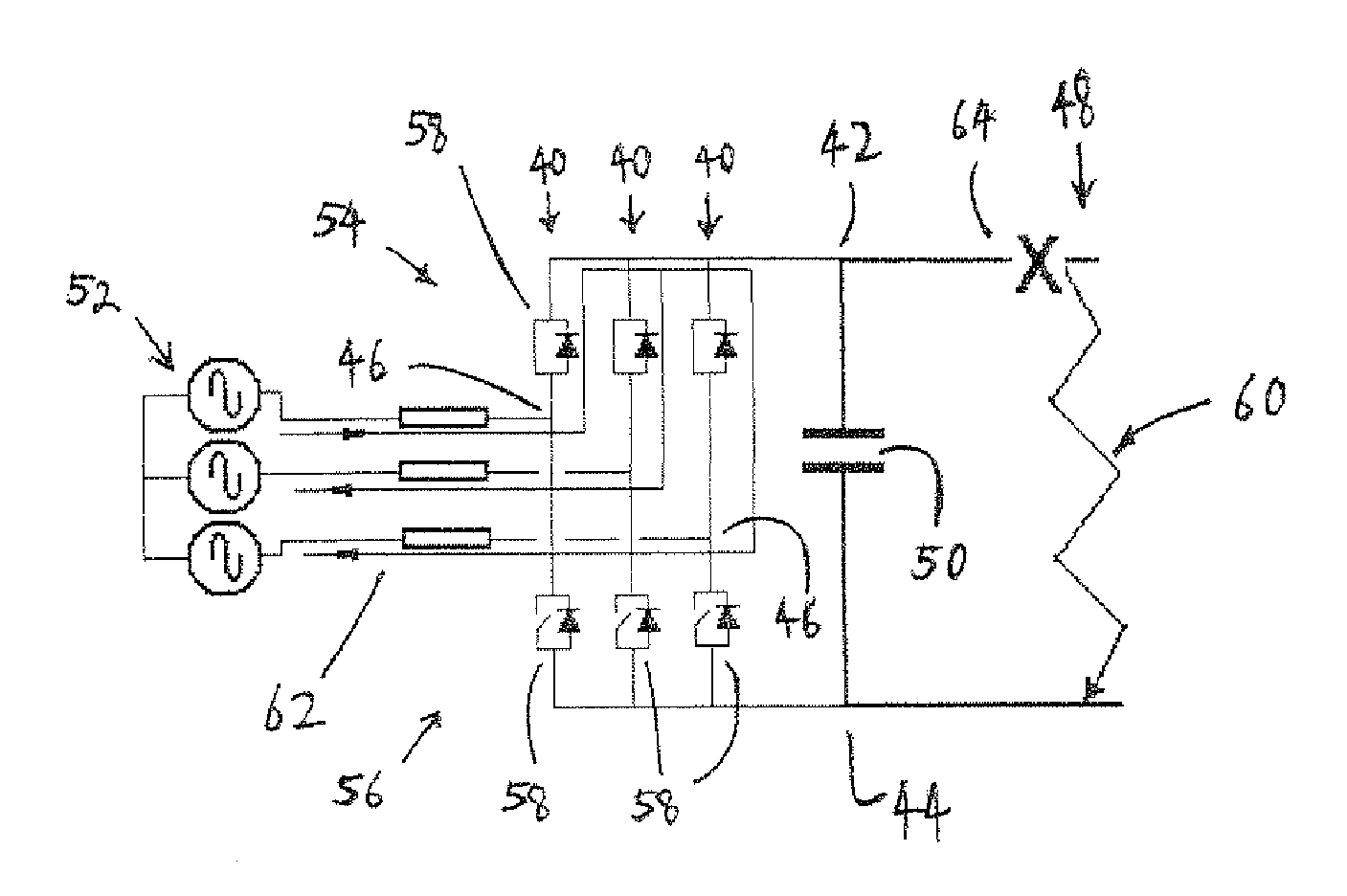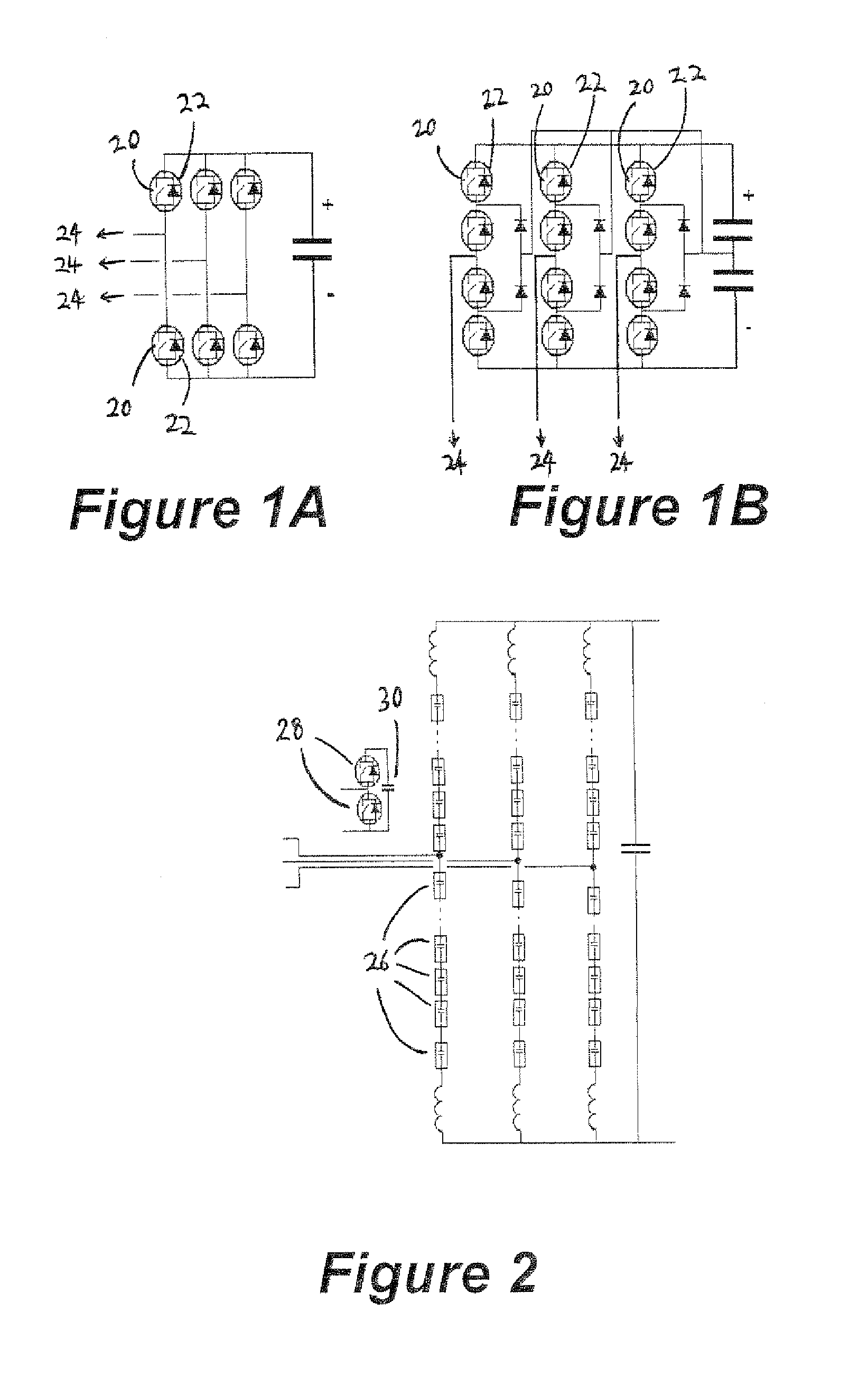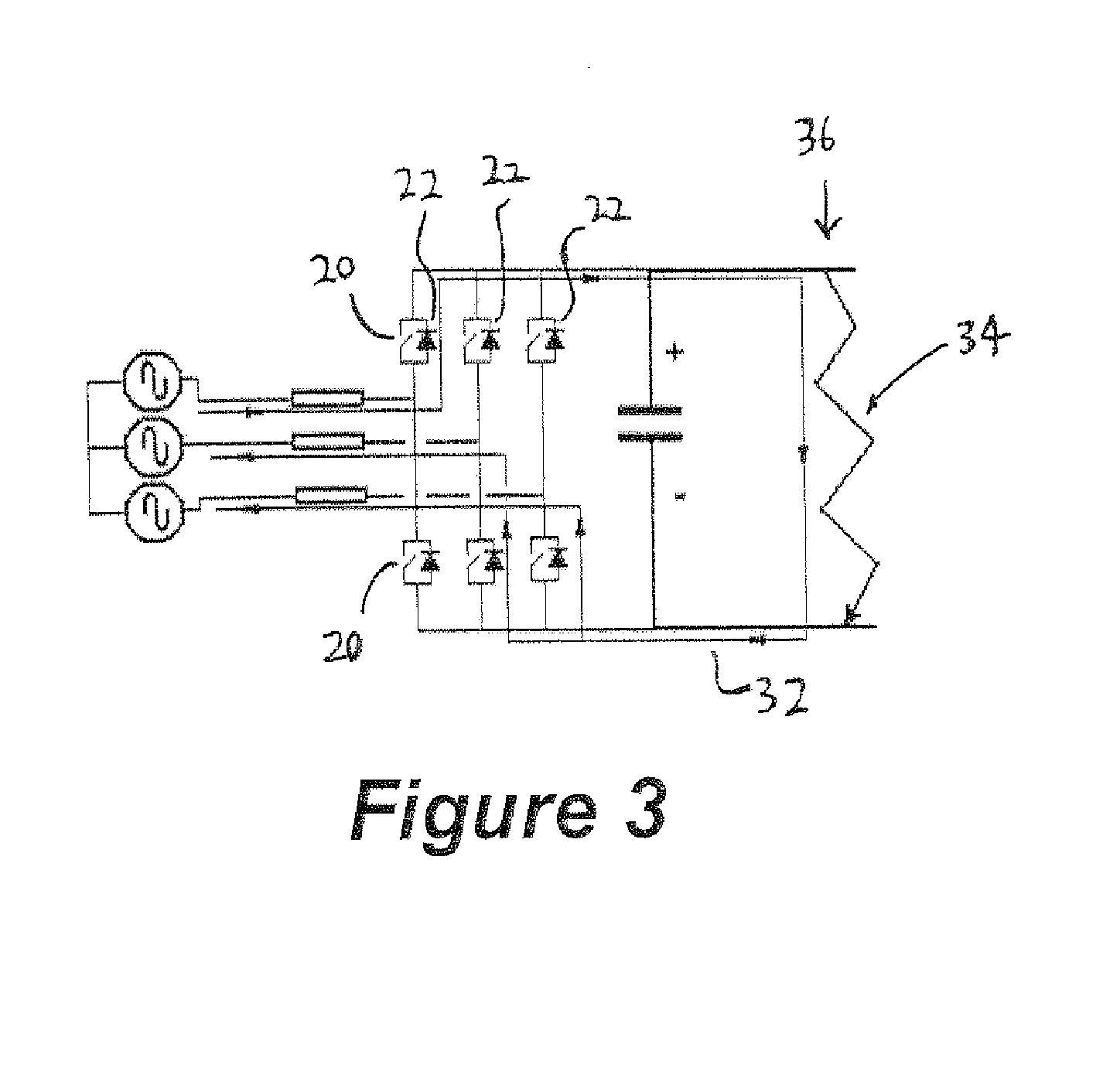Converter for HVDC transmission and reactive power compensation
a technology of power electronic converter and converter, applied in the direction of electric variable regulation, process and machine control, instruments, etc., can solve the problems of high fault current in the power electronic converter, and achieve the effect of low power dissipation, low cost and low cos
- Summary
- Abstract
- Description
- Claims
- Application Information
AI Technical Summary
Benefits of technology
Problems solved by technology
Method used
Image
Examples
first embodiment
[0073]the power electronic converter comprises a plurality of converter limbs 40, as shown in FIGS. 4A to 4C. Each converter limb 40 includes first and second DC terminals 42, 44 and an AC terminal 46.
[0074]In use, the first DC terminal 42 of each converter limb 40 is connected to a positive terminal of a DC network 48 which carries a voltage of +VDC / 2, where VDC is the DC voltage range of the DC network 48 while the second DC terminal 44 of each converter limb 40 is connected to a negative terminal of a DC network 48 which carries a voltage of −VDC / 2. It is envisaged that in other embodiments, the first and second DC terminals of each converter limb may be respectively connected to negative and positive terminals of the DC network.
[0075]A DC link capacitor 50 is connected in series between the first and second DC terminals 42, 44 and in parallel with each converter limb 40.
[0076]In use, each AC terminal 46 is connected to a respective phase of a three-phase AC network 52. In other ...
second embodiment
[0089]In the power electronic converter, the power electronic converter is exactly the same as the power electronic converter in FIGS. 4A, 4B and 4C except that each electronic block includes a chain-link converter. In such embodiments, the single chain-link converter in each electronic block may be replaced by a plurality of chain-link converters.
[0090]Each chain-link converter includes a chain of modules connected in series, each module including at least one pair of secondary switching elements connected in parallel with a capacitor. The secondary switching elements of each module are operable so that the chain of modules provides a stepped variable voltage source, and are switched at near to the fundamental frequency of the AC network.
[0091]The number of modules in each chain-link converter is determined by the required voltage rating of the voltage source converter.
[0092]In embodiments employing the use of one or more chain-link converters, each module may include a pair of sec...
third embodiment
[0109]the power electronic converter is shown in FIG. 6. Each electronic block includes a primary switching element 58 connected in series with a chain-link converter 66. In FIG. 6, the primary switching element 58 of each of the first and second limb portions 54,56 is connected to the AC terminal 46, which is connected in use to an AC network 52, and the chain-link converter 66 of each of the first and second limb portions 54,56 is connected to the respective DC terminal 42,44, which is connected in use to a DC network 48.
[0110]The series connection between the primary switching element 58 and the chain-link converter of each of the first and second limb portions means that, in other embodiments, they may be connected in a reverse order between the AC terminal and the respective DC terminal.
[0111]It is also envisaged that in other embodiments, the arrangement and number of primary switching elements and chain-link converters in each electronic block of each limb portion may vary de...
PUM
 Login to View More
Login to View More Abstract
Description
Claims
Application Information
 Login to View More
Login to View More - R&D
- Intellectual Property
- Life Sciences
- Materials
- Tech Scout
- Unparalleled Data Quality
- Higher Quality Content
- 60% Fewer Hallucinations
Browse by: Latest US Patents, China's latest patents, Technical Efficacy Thesaurus, Application Domain, Technology Topic, Popular Technical Reports.
© 2025 PatSnap. All rights reserved.Legal|Privacy policy|Modern Slavery Act Transparency Statement|Sitemap|About US| Contact US: help@patsnap.com



